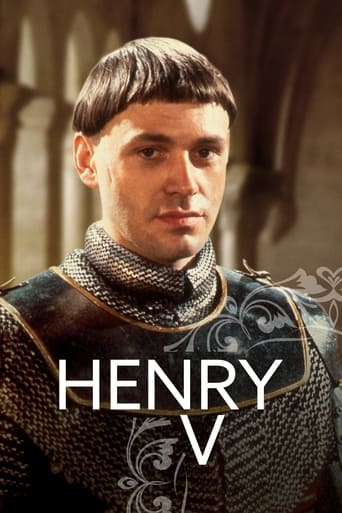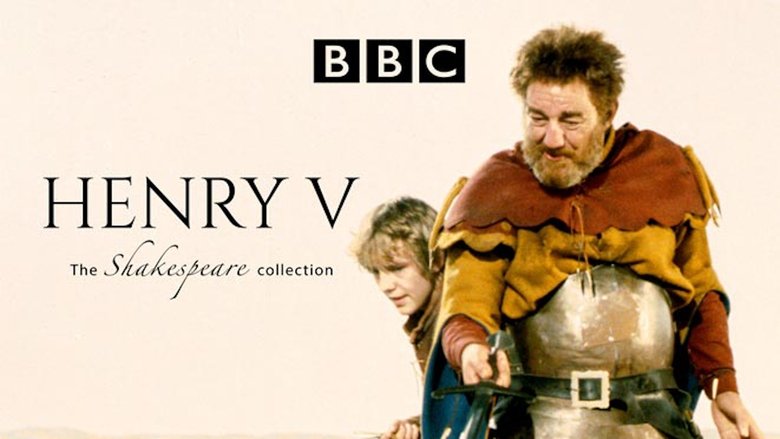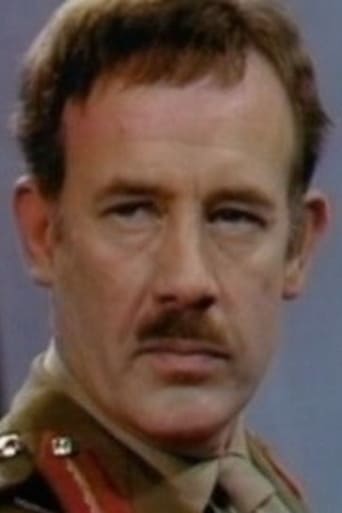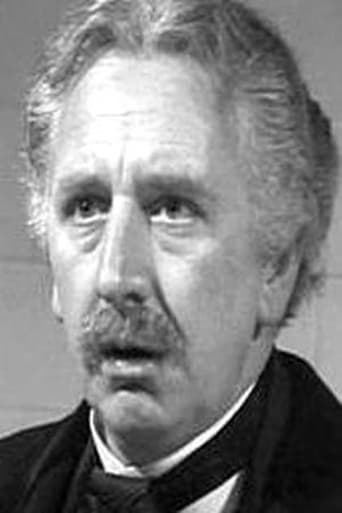Henry V (1979)
The life of King Henry the Fifth.
Watch Trailer
Cast


Reviews
I love this movie so much
Sick Product of a Sick System
When a movie has you begging for it to end not even half way through it's pure crap. We've all seen this movie and this characters millions of times, nothing new in it. Don't waste your time.
Blistering performances.
He is the perfect king in Shakespeare's plays who reigns from 1413 to 1422, hence nine years. Shakespeare invested him in three previous plays, Richard II, 1 Henry IV and 2 Henry IV. But in these plays he is a kid and then a teenager playing it hooky in the taverns of London. But that time is now finished as we know from his rebuke to Falstaff on his coronation day at the end of 2 Henry IV. The man has changed and his most important achievement is the battle of Agincourt on October 25, 1415, the day that celebrates Saint Crispin that Shakespeare also calls Crispian who was put to death on October 25, 285. Note how the superstitious people of Shakespeare's time can jubilate on the fact that 285 produces 15 by adding the three digits of the date. Hence 1415 is a miracle date that brings God down on Henry's side to the point that the battle only kills twenty-five people on the English side, dixit Shakespeare, twenty-five to honor October 25, Saint Crispin's day. This English king who has the intention to unify England and France by marrying the King of France's daughter will fail in that respect since his son will only be six years old when he dies in the Château of Vincennes in France on 1422. Note though how they all are cousins or uncles. In other words these two crowns are systematically inbreeding. There is little clean blood and new blood in their descendants. Shakespeare seems to consider this as normal and even a sign of closeness, hence a justification for unifying the two crowns and of course the two nations that are seen and defined as being born under the kings of this period. The War of Roses is like a nation-forming civil war, a war between brothers and cousins, uncles and nephews. That's one of the results of this intense inbreeding. So Henry V marries his cousin. And their imposing the One Hundred Year War onto the French will enable the French to become a nation at the same time. That's the end of the play and the courtship of Henry to Katharine is both awkward and funny how Henry is behaving like a soldier and wants the courtship to be a battle and Katharine to yield to his might, and at the same time how Katharine is well-behaved and French-educated and she has to flee, fly away and flutter around, and she swiftly parry his assault, deflect his attack, block and avert his advance, counter and rebuff his intention, and finally repel and repulse his vanity to take as a conquest what should be received as a gift or a present. Luckily her father King Charles VI arrives and he can finally give his daughter to Henry and Henry can finally receive Katharine. The love words of Henry are vastly contorted by the linguistic game of both, Katharine trying to speak some English and Henry attempting the impossible task of speaking some French.The whole action of the play is one battle or nearly, the war leading to that battle, Agincourt, and it is thus entirely dominated by military questions. It contrasts the English army led by Henry V and the French army led by the Dauphin in the name of his aging father Charles VI. Imagine the French nobles drinking wine in the morning before the battle and boasting that they are going to defeat the English the way they gulp their wine. On the other side the English are austere and very serious in their concentration on God and his necessary help. The English are humble in many ways and the French are vain, as vain as peacocks who will end up plucked like chickens before roasting or broiling.In a very clear sign of defeat Montjoy, the French herald, appears three times. The second time he had said he would not come again, and the third time he comes to concede the day is Henry's, hence the defeat. Three is always a sign of a disturbance, a bad news, a catastrophe. But the catastrophe of one side is the victory of the other. And he will come a fourth time with the body counts that will settle the bad news and bring up a good news. First the French body count:"HENRY V: ten thousand, sixteen hundred mercenaries; The rest, princes, barons, lords, knights, squires, And gentlemen of blood and quality." (IV viii)And then the English body count:"HENRY V: Duke of York, Earl of Suffolk, Sir Richard Ketly, Davy Gam, esquire: all other men five and twenty." (IV viii)But the strong point is the night before the battle. On the French side they revel and are bored of waiting. On the English side they try to rest and concentrate on their divine mission. The king though tries something delicate: he hides himself under some cloak and goes around to check on his men. Security is correct every single time he comes up in the night. He finally sits with a group of soldiers and one of them, Williams, gets into an argument with the King, not knowing who he is, because Williams is not as respectful as he should be and Henry overreacts. But this leads to a deep and sad reflection of the king. He sees his place as the depositary of all the tasks and actions of the people but he also considers that the soul of these people is their own and they have to look after it themselves, as he says to the soldiers in the night.And then alone he gets onto a long reflection of the fate of a king, shifting from prose to verse to let us know he is reaching out to the sky, to God, to the truth of life he definitely considers as the truth of God.Dr Jacques COULARDEAU
I want to reply to one of the claims made by the 2010 reviewer (who puerilely refers to Shakespeare as "Will"). This reviewer states that the play is presented "with minimal, if any cuts." If the reviewer takes the time to read the play instead of making uninformed pronouncements about it, he or she will discover that numerous cuts have been made in the BBC's production. To be sure, most of the abridgments are pretty well judged, and there are considerably fewer abridgments than in the Olivier and Branagh versions. Nonetheless, the claim that the BBC's production presents the text uncut or nearly uncut is flatly incorrect.As for the production itself, it's quite a good rendering of an uneven play. I agree that David Gwillim is too "weepy" and "whispery", but he performs several of his scenes well (for example, the scene with the tennis balls -- until he starts to throw them -- the scene of the exposure of the traitors, and the scene in which he woos Katherine). His rendering of the magnificent St Crispin's Day speech is very disappointing, but his rendering of the riposte to Montjoy shortly after that speech is excellent. Likewise, although he starts the great "Once more unto the breach" speech quite lamely, he finishes it well. Other members of the cast are generally proficient. In particular, the actors who appear as the French nobles seem to enjoy their roles, and they perform those roles adeptly.
I'll start with a correction to another review: Like most or all of the other BBC Shakespeare productions I've watched, this has some minor abridgments, e.g., the haggling about "Heir to France" in V.2. It's nothing like as extreme as the "Good Bits" approach that Branagh took, and indeed leaves in some passages that suggest that even Shakespeare nods, such as Fluellen's nattering about Macedonian and Monmouth rivers immediately after mourning the massacre of the boys.Like most of the other BBC Shakespeare I've watched, it's mostly competent, low-key, and not very dramatic. (After Olivier and Branagh, it was kind of interesting to see a sedate Crispin's Day speech.) There are some outright mistakes in the directing, at least in the light of Branagh. I don't see how anyone, for instance, could ever have directed Nym's leave-taking from Mistress Quickly as casual. But there are bits of Shakespeare here you won't see anywhere else, so it's worth watching, once you've seen Olivier and Branagh.
Another BBC take on Shakespeare's histories, this production is of somewhat dubious quality. Completely unabridged, the play can be difficult to follow for those who have not read it, also, the poor camera angles and lacklustre performances from the cast fail to emphasise on certain points. David Gwillim, whom certainly looks more like Henry V than Olivier or Branagh, has a mixed performance in the lead role. His Henry, while amusing and likeable at times, tends to whimper his speeches, most notably when he meekly whispers his way through the St. Crispins day speech before leading his men against three or four pitiful French whom, we are to believe, are actually Sixty-thousand strong. In fact I lie, Henry does not even lead his men, we only see him trudging towards us after the "battle" has taken place. The characters than have the audacity to boast that ten-thousand French have been slain, when we have yet to see one dead body (discounting the solitary dead "boy")The scenery is poor as well, instead of filming on location, the play is filmed on a horribly unrealistic set, the walls of Harfleur are evidently made from cardboard or some such substance, and the scenic field of Agincourt is in fact a wall. Cinematography does not change, almost all of the play is filmed in bright cutesy colours and Agincourt seems a remarkably pleasant "telly-tubby" place (all we need is the. We just cannot believe for a moment that what we are watching is real. The lack of music as well must be stated, since it strips the play of drama and tension.This play could have been so good, the cast is capable, but the direction is so poor. If music, on-location sets, and better cinematography (i.e mud, fire, blood at Harfleur and Agincourt) had been used, then for very little extra money, the play could have been brilliant.







